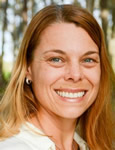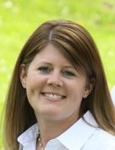This prototype was created with the interest of potentially using it for teaching English at the university level as a foreign language to undergraduate Japanese students. The LMS consolidates online writing process software tools, with not only descriptions of the writing stage, but that also provides tools to accomplish each stage of Process Writing: Planning, Drafting Revising, and Editing.
Development of the course began with course learning outcomes and student learning objectives:
- Expose students to the writing process,
- Scaffold selection of appropriate writing strategies,
- Encourage E-learning skills in Canvas LMS and online websites.
These course outcomes aligned the student learning objectives and assessments. Personalized learning, visual communication, and Universal Design for Learning were considered in design and development of the course. To address these concerns learners are afforded multiple ways to show competency by using unique technology or methods to create exemplars, choice in control content and flexibility, multimedia and text-based content, and personalized conversations, and clear guidelines and rubrics for grading criteria and assessment.
A recording of this presentation is available.
Click the button to the right to access the session archive.
 Joseph Peters, University of Hawaiʻi at Mānoa, Honolulu, Hawaii, USA
Joseph Peters, University of Hawaiʻi at Mānoa, Honolulu, Hawaii, USA Tracy Crawford, University of Phoenix, Carlsbad, CA, USA
Tracy Crawford, University of Phoenix, Carlsbad, CA, USA Jennifer Romano, University of Phoenix, Daphne, AL, USA
Jennifer Romano, University of Phoenix, Daphne, AL, USA Lauren Critchley, University of Phoenix, Bonaire, GA, USA
Lauren Critchley, University of Phoenix, Bonaire, GA, USA Sandra Rebeor, Ashford University, San Diego, California, USA
Sandra Rebeor, Ashford University, San Diego, California, USA Michelle Rosser-Majors, Ashford University, San Diego, California, USA
Michelle Rosser-Majors, Ashford University, San Diego, California, USA Christine McMahon, Ashford University, San Diego, California, USA
Christine McMahon, Ashford University, San Diego, California, USA Stephanie Anderson, Ashford University, San Diego, CA, USA
Stephanie Anderson, Ashford University, San Diego, CA, USA Trevor Belcher, Ashford University, San Diego, CA, USA
Trevor Belcher, Ashford University, San Diego, CA, USA Jan Tucker, Columbia Southern University, Orange Beach, AL, USA
Jan Tucker, Columbia Southern University, Orange Beach, AL, USA